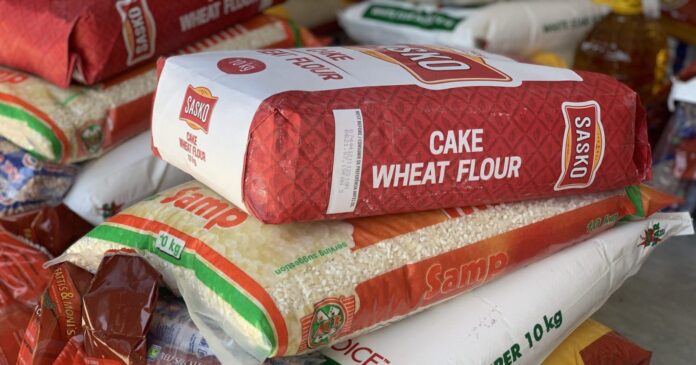South Africa’s consumer price inflation (CPI) rose to 7.8% in July from 7.4% in June, show Statistics SA figures released on Wednesday.
The CPI report shows that while transport, food and non-alcoholic beverages (NAB), housing, and utilities continue to put pressure on the annual rate, bread and cereals, oils and fats, fuel, and electricity also made a notable impact on the new reading that stipulates a 13-year high.
The inflation index increased by 1.5% between June and July, the fourth time it has risen by 1.5% or higher since 2008.
“The consumer price index jumped by 1.5% between June 2022 and July 2022 – only the fourth time since 2008 [i.e. since the beginning of the current CPI series] that the monthly increase was 1.5% or higher,” according to the report.
“Consumers are feeling the pinch, particularly for non-durable goods – those items bought most frequently such as food, drinks, electricity, fuels, and medicine. The annual inflation for non-durable goods is in double-digit territory, at 14.4%. This is much higher than the rates recorded for durable goods [4.8%] and services [4.2%].”
According to the report, the annual rate for food and NAB was 9.7% in July, higher than the 8.6 reading in June. The report suggests that bread and cereals inflation continues to hasten with the annual rate rising to 13.7 from 11.2% in June.
“The monthly increase was 2.4% in July, with large monthly price increases recorded for maize meal [4,2%], cake flour [6.3%], macaroni [5%] and white bread [2.8%]. Rice bucked the trend, with prices decreasing by 3.1%.”
While municipalities continue to increase service charges, electricity tariffs are also increasing. According to the CPI report, electricity tariffs increased by 7.5% equivalent to 7.5% benchmark approved by the National Energy Regulator.
Stats SA said this increase is lower than the rise of 13.8% recorded in 2021 but is higher than the increase of 6.3% recorded in 2020.
“Together with the rise in electricity tariffs, consumers also had to deal with further fuel price increases. Transport costs were up by 4.8% between June and July, with fuel rising by 9.4%.
“Fuel is 56.2% more expensive than it was 12 months ago, with the price of a litre of inland 95-octane petrol rising from R17.39 in July 2021 to R26.74 in July 2022. The average price for diesel increased from R16.58 to R26.61 per litre over the same period.
“Those relying on public transport didn’t escape the pain. Taxi fares jumped in July too, rising by 9% from June and taking the annual rate to 16.4%,” reads the report.
In July, Stats SA said the main contributors to the 7.4% annual inflation rate recorded in June were food and non-alcoholic beverages, housing and utilities, transport, as well as miscellaneous goods and services.
It added at the time that food and non-alcoholic beverages increased by 8.6% year on year and contributed 1.5 percentage points to the total CPI annual rate of 7.4%, while housing and utilities increased by 5.1% year on year and contributed 1.2 percentage points.
In June, the agency pointed to the effect of rising fuel prices. Although fuel was a major contributor to the annual rate, transport, food, and non-alcoholic beverages also contributed greatly.
The CPI report showed that the inflation rate dropped to 5.1% from 6.5% if the impact of fuel is removed.
Diesel took up most of the annual rate pie, amounting to 45% since the prices increased by 8.1% between April and May, while petrol prices accounted for 0.7% in the same period.
“The average price of a litre of diesel in May 2021 was R16.20, meaning it cost R729 to fill a 45-litre tank. Twelve months later, with the average price at R23.67 per litre, filling the same tank costs R1 065,” said Stats SA in its report at the time.
“Petrol prices moderated between April and May, edging lower by 0.7%. Despite this decline, petrol is almost 27% more expensive than it was in May 2021.”
Meanwhile, trade union federations Cosatu and Saftu are embarking on a national shutdown. The disgruntled protestors are calling for the government to intervene in the rising cost of living.
On Tuesday, Saftu said it wants the government to avail a trillion rand to meet the demands it has made ahead of the national shutdown. The trade union federations, which are also calling for a heftier tax on the rich, believe that the government has the ability to redirect funds to address pressing issues such as unemployment.
Also read: Santaco refuses to endorse call for national shutdown
EFF threatens national shutdown against high fuel, food prices
Further interest rate hikes likely as inflation continues to climb unabated
For more business news from Sunday World, click here.
Follow @SundayWorldZA on Twitter and @sundayworldza on Instagram, or like our Facebook Page, Sunday World, by clicking here for the latest breaking news in South Africa. To Subscribe to Sunday World, click here



